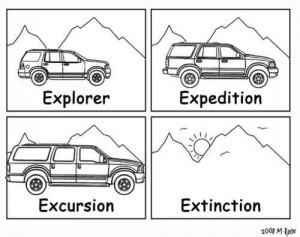Review by Eduardo Rey Brummel
Rural Life – July 2008 – Colorado Central Magazine
Coyotes Always Howl at Night: Tales of a 70s rancher’s wife.
Audrey Keen-Hansen
Trafford Publishing, 2006
ISBN: 1-4251-0748-6
ONCE UPON A TIME, when the national migration to the mountain states was some fifteen or twenty years away, Colorado was still thought of as something of an “outback.” During that era of Vietnam, “Sock it to me,” “And that’s the way it was,” Keen-Hansen moved from the mid-west to join Veryl, her newly-wedded husband, on his ranch three miles east of Alamosa. She brought her thirteen-year-old son, Chris, who’d been nine months old when his father, died, leaving Keen-Hansen widowed. Veryl, widowed himself for about two years, had his own son and daughter.
One can only wonder at the culture shock Keen-Hansen suffered, coming from a life-time of cities, when she moved to the San Luis Valley. The area’s open breadth and hush must have overwhelmed her. Marriage is intrinsically risky enough without throwing in the differences between Oshkosh and the Alamosa “sticks.”
In her introduction, Keen-Hansen writes, “Western literature is full of old-time sheriffs, wagon train diaries, cowboys, and Indians. Could there be room for a woman’s latter-day experiences full of trial, error, and adventure? I wonder.” Veryl taught biology at Adams State College, whereas Keen- Hansen, who’d been a university professor in Illinois and Wisconsin, “had thrown that life to the wind to become a rancher’s wife, a stepmother, and had entered a brand-new world in the West.”
Her memoir is composed of vignettes. Most of them last a single page; none of them four pages. They feel like the stories your mother tells over cradled cups of coffee, when you’ve asked, “What was it like, when you were my age?” There’s an intimate informality to Keen-Hansen’s tales that draws you in. It’s no insult when I call them “short and sweet.”
These stories might lack the refined polish typically encountered, but maybe that’s beside the point. After hearing one of your mother’s tales, you don’t correct her telling of it, and you don’t ponder how she might have told it better. Any raggedness is a necessary part of the tale-told. Among these collected memories are Keen-Hansen’s tales of finding a snake on her windshield, having the local dress store call to say her breast is ready, and the time their “invincible” 4WD got stuck in the middle of less-than-nowhere.
Life wasn’t all bad, of course. She closes with, “I loved the San Luis Valley, the majestic mountains, the people who knew what friendship is and who cared about others as a matter of course. The way of life in Alamosa, I suppose, can be duplicated only in another small rural Western town like it. It will always live in my memory. I miss it.”
A story where the main character takes risks, overcomes adversity, and transforms, leading to a happy ending: Isn’t that hitting enough nails on the head?
Eduardo Rey Brummel keeps meaning to publicly thank Susan J. Tweit for elbowing him to submit his work.

